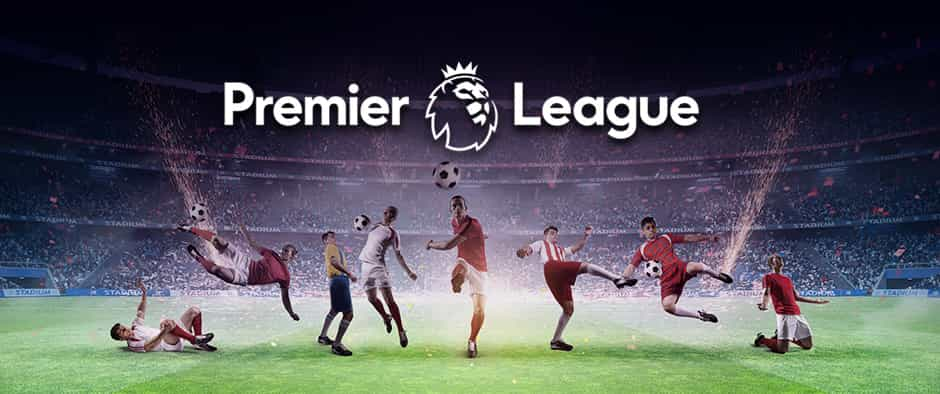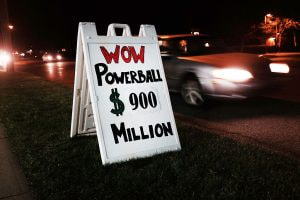Independent Football Regulator: UK’s Game-Changing Move
In the recent King’s Speech, King Charles outlined the plans of the UK government to introduce an independent football regulator, a paramount development in English football governance. In this article, our sports analyst, Luke Andrews, delves into the intricacies of the proposals. Why is it needed? And asks if the UK government could fall foul of FIFA’s rules on government interference.

In His Majesty’s Speech, a significant development in English football was highlighted, marking a pivotal moment in the sport’s governance. The announcement detailed the forthcoming introduction of an independent regulator, a transformative step from a comprehensive fan-led review conducted in the previous year.
His Majesty King Charles articulated the essence of the Football Governance Bill, underscoring its core objective: to ensure the preservation and prosperity of football clubs, thereby serving the interests of communities and supporters alike.
This groundbreaking bill, set to usher in a new era of football administration, encompasses a more stringent owners’ and directors’ test, a crucial component of the overarching plan.
Central to the regulator’s mission is preventing the tragic demise of historic football clubs, simultaneously amplifying fans’ voices and influence in the sport’s decision-making process.
The main aims of the proposals are;
- Halting the participation of English teams in exclusive leagues deemed detrimental to local football
- Avoiding financial mismanagement as witnessed in clubs like Bury and Macclesfield
- Implementing a rigorous test for owners and directors to safeguard clubs and their supporters
- Empowering supporters to veto alterations to their club’s emblem, name, and traditional kit colours
- Guaranteeing equitable financial distribution throughout the English football hierarchy, originating from the Premier League
This legislative initiative traces its roots to the previous year’s fan-led review, led by the Sports Minister Tracey Crouch.
Her findings unequivocally advocated establishing a regulator as a fundamental necessity for the enduring fiscal health of professional football. Reacting to the speech on a social media platform, Crouch expressed her delight, labelling the mention of the bill as a momentous stride forward for English football.
There are obviously many things in the King's Speech but as the former Chair of the Fan-Led Review, here is my response to the specific announcement on football legislation… pic.twitter.com/6DoVKw69hu
— Tracey Crouch (@tracey_crouch) November 7, 2023
Rick Parry, the chair of the English Football League, welcomed the landmark announcement with open arms, recognising its potential to shape the future of the sport. He emphasised the league’s continuous, constructive dialogue with the Department for Digital, Culture, Media and Sport (DCMS), pledging continued collaboration in creating fair and successful legislation.
Niall Couper, the chief executive of Fair Game, a campaign group advocating for better governance in football, heralded the announcement as a historic juncture for the sport. He underlined the regulator’s hefty responsibility to enforce new rules, promote equitable financial distribution, and aid clubs in adopting necessary reforms.
The proposed regulator is set to possess the ultimate authority to enforce a new financial arrangement, essentially granting it the power to mandate the Premier League to distribute more funds throughout the football hierarchy.
Rick Parry, the EFL chairman, is advocating for a 25% allocation of combined broadcast earnings with the Premier League, equitable merit-based payments across all divisions, and the elimination of ‘parachute payments’ for teams descending from the premier division.
However, the EFL has communicated to its clubs a lack of optimism in achieving the desired financial agreement.
As negotiations continue, the regulator is prepared to initiate compulsory arbitration in the absence of a consensus.
“The government fully supports the Premier League’s global prestige and its ongoing prosperity,” stated the government. “Yet, to ensure the long-term financial health of clubs at every level, a resolution driven by the league and club administrators is preferable and remains the government’s favoured approach.
“In the event that the football authorities fail to reach a consensus, the regulator will possess specific emergency powers to step in and facilitate a resolution when necessary.”
The Premier League has noted that it has already allocated 15% of its income and agreed to a £250 million relief fund in 2020 to alleviate the financial strain on EFL clubs caused by the Covid-19 pandemic.
Parachute payments, designed as solidarity contributions to assist relegated teams in adjusting to reduced income, have been a point of contention. These payments include 55% of the broadcast revenue share received by Premier League clubs in the first year post-relegation, 45% in the second year, and 20% in the third year.
Fulham having accumulated over £400m of losses over the past few seasons & then possibly spending £12m on a single player (with likely incredible wages) when the rest of the Championship is on its arse trying to meet FFP! …they wonder why parachute payments are breaking football
— Luke Sherwin (@teamluca) July 23, 2021
The current system is deemed unfit for purpose by many as it creates an unfair situation in which relegated Premier League clubs are given funds, giving them an advantage over teams currently in the league. This situation has seen clubs being too powerful for the Championship, but not good enough for the Premier League.
| Clubs With the Most Promotions and Relegations | ||
|---|---|---|
| Club | Premier League Relegations | Championship Promotions |
| West Brom | 5 | 5 |
| Norwich City | 5 | 5 |
| Crystal Palace | 4 | 4 |
| Sunderland | 4 | 4 |
| Watford | 3 | 4 |
| Birmingham City | 3 | 3 |
| Leicester City | 3 | 4 |
| Fulham | 3 | 3 |
| Hull City | 3 | 3 |
| Wolves | 2 | 3 |
| Cardiff City | 2 | 2 |
The King’s Speech, delivered during Rishi Sunak’s tenure as prime minister, potentially his final before the anticipated general election next year, was a historic moment, setting the stage for the much-needed transformation of English football governance.
Why Does the Government Want to Introduce an Independent Regulator?
For many years, football has often been compared to the Wild West, with lack of regulations, meaning anyone with money (and sometimes without) could own a football club. While many owners had the club’s interest at heart, many didn’t and would asset strip the football club and sell off the “family jewels”.
Take Manchester United for example. Once proudly a debt-free club, it was a publicly listed company in 1991.
By the year’s end in 2003, Malcolm Glazer had significantly bolstered his stake in the club, elevating it from a mere 3.17% to a commanding 15%. This noteworthy escalation was further intensified the following year, culminating in October 2004, when his shares nearly doubled.
The pivotal moment arrived in May 2005 with his strategic acquisition of John Magnier and J.P. McManus’s substantial 28.7% holding. This move propelled Glazer’s stake to 57%, surpassing the critical 30% threshold and consequently necessitating the initiation of a formal takeover bid.
Glazer soon secured a dominant 75% share in a swift and decisive sequence of events, facilitating the club’s removal from the London Stock Exchange.
The culmination of this aggressive acquisition strategy was witnessed within a mere month, as the Glazers, through their Red Football parent company, attained an overwhelming 98% control of the club. This manoeuvre effectively squeezed out the remaining 2% of minority shareholders.
What has annoyed Manchester United fans is that the takeover was leveraged on the club (something that is no longer allowed), resulting in the club being plunged into debt.
Amidst fluctuating exchange rates, the club’s principal debt, steadfast at $650 million, experienced a notable shift in its sterling equivalent. Consequently, the amount owed escalated to £535.7 million, marking a significant increase from the previous year’s figure of £477.1 million at the corresponding time.
Moreover, the club has drawn £206.2 million from a revolving credit facility and another £227.7 million in pending transfer fee payments.
Record annual revenue for English club of £648.4m 📈
Net loss up 23.8% from £34m to £42.1m 📉
Total debt (not including money owed on transfer deals) is £613.3m 👀Kaveh Solhekol breaks down Manchester United's financial results for the fiscal year 💰pic.twitter.com/LCbHxfwm2a
— Sky Sports Premier League (@SkySportsPL) October 26, 2023
According to the BBC, despite possessing £31 million in liquid assets, including cash and equivalents, the club’s total financial obligations bring the amount owed close to the £1 billion mark.
The weight of servicing the debt has been a substantial financial strain. Illuminating this aspect, football finance commentator Swiss Ramble reveals that the cost of interest borne by United amounts to a staggering £743 million.
Additionally, over the years, the club has disbursed approximately £166 million in dividends to its shareholders. This is compounded by the £55 million allocated for director remuneration, a notable detail considering six of the twelve board members hail from the Glazer family. Furthermore, the club has incurred £23 million in management fees.
While a club the size of Manchester United can service its debt, other clubs have not been so fortunate.
The Collapse of Bury Football Club
Without a doubt, one of the driving forces behind the desire to introduce an independent regulator was due to the collapse of Bury Football Club.
Founded in 1885 and twice an FA Cup winner, Bury’s expulsion marked a sad milestone, as they became the first club in this tier (League One) and the first FA Cup winner to face this fate from the EFL.
The developments at Bury Football Club culminated in a rather disheartening conclusion, with the club expelled from the English Football League. This drastic turn of events followed the collapse of a takeover bid by C&N Sporting Risk, leading to a grave situation for the historic League One club.
Despite being afforded an extension beyond the original deadline of Friday, August 18, the club could not seal the deal by 17:00 BST on Tuesday, August 22. This led to Bury becoming the first team since Maidstone in 1992 to exit the EFL.
As a result, League One proceeded with 23 clubs for the remainder of the season, reducing the number of relegation spots to three.
BBC Radio Manchester’s Mike Minay described the scene at Gigg Lane at the time as one of shock and despair among the fans, many of whom were visibly distraught at the news.
Debbie Jevans, the EFL’s executive chair, called it “one of the darkest days” in the league’s history, acknowledging the profound impact on Bury’s players, staff, fans, and the wider community. She stated, “This was undoubtedly a deeply upsetting and devastating time for everyone involved with Bury.”
C&N Sporting Risk pointed to the club’s financial challenges as ‘insurmountable’, highlighting the situation’s complexity. Meanwhile, the plight of Bury’s fellow League One team, Bolton Wanderers, continued as they faced their own financial difficulties and a looming deadline to secure their existence.
The EFL had previously halted Bury’s first six fixtures of the season due to unresolved financial issues and the need for proof of their capability to sustain operations throughout the season. Despite efforts, the 23:05 BST deadline on Tuesday saw the league reluctantly withdraw Bury’s membership following “a long and detailed discussion”.
The club’s owner, Steve Dale, had announced a sale that initially extended the deadline to Tuesday. However, concerns from C&N Sporting Risk about the limited timeframe led to the deal’s breakdown. In a heartfelt display of support, approximately 300 volunteers had gathered at Gigg Lane in anticipation of hosting Doncaster Rovers on Saturday, but their efforts proved futile.
The response to Bury’s expulsion was one of widespread dismay and critique. Bury North MP James Frith expressed his frustration, particularly at the perceived inconsistency in the EFL’s handling of the crises at Bury and Bolton. He emphasised the need for this to be a turning point in lower-league football, highlighting the precarious financial situation of many clubs.
The club’s financial struggles had been escalating for some time, worsened by previous owner Stewart Day’s tenure and continued under Dale’s ownership since December, marked by delayed payments and winding-up petitions. Despite a company voluntary arrangement (CVA) being agreed upon, the EFL’s concerns about financial viability led to postponed fixtures and an eventual expulsion deadline, which Bury could not meet.
Bury Football Club 😢💔 pic.twitter.com/dv6v17Ca9E
— ESPN UK (@ESPNUK) August 28, 2019
In the wake of the challenges faced by Bury FC, which had not entered administration and remained inactive, December 2019 saw a pivotal moment. A fervent group of supporters, deeply connected to the heritage of their club, took the decisive step to form a new club. This entity was aptly named Bury Association Football Club (Bury AFC), honouring its historical roots while looking forward to its future.
This venture quickly resonated with the local community, with approximately 300 erstwhile Bury FC supporters joining the cause. They founded a company, Bury Football Club (2019) Ltd, trading as Bury AFC, and established their base in Rawtenstall. The club adopted a structure owned by its fans, underpinning democratic governance through the principle of one member, one vote.
Bury AFC swiftly began establishing its presence in the football landscape. The club applied to the North West Counties Football League, which operates in the tenth tier of the English football league system, aiming to participate in the 2020–21 season. The league sanctioned this application on February 21 2020.
Bury AFC also applied for participation in the FA Vase to pursue competitive play, demonstrating their competitive spirit.
The membership of the club witnessed a steady and heartening increase. By early August 2020, the membership count exceeded 650, rising and reaching a significant landmark of 1,000 members by October. At this juncture, the team began its competitive journey, supported by each member’s monthly contribution of £5.
The Demise of Macclesfield Town
On October 13 2020, Macclesfield Town Football Club, which had endured a protracted period of financial turmoil, was ultimately wound up in the High Court due to substantial debts exceeding half a million pounds.
Judge Sebastian Prentis, who presided over the Insolvency and Companies Court hearing, delivered the winding-up order, highlighting the club’s significant tax liabilities of £190,000.
The club’s fiscal woes worsened when it was revealed that John Askey, the former manager of the National League club, was owed a substantial sum of £173,000. Similarly, a financial lender was also owed an equivalent amount. Amidst these pressing financial obligations, the club’s owner, Amar Alkadhi, had sought an additional eight-week adjournment, a plea that ultimately did not alter the course of events.
The decision to liquidate the club followed a notably tumultuous 2019-20 season, both on and off the pitch, which saw Macclesfield relegated from the English Football League (EFL). The season was marred by significant strife, including player strikes due to unpaid wages, which led to the fielding of youth players in their FA Cup defeat against Kingstonian. The club also faced multiple points deductions for failing to pay salaries and for not fulfilling League Two fixtures.
Alkadhi had relinquished his role as chairman in August, shortly before the EFL successfully appealed for a more severe points deduction than initially imposed. This heightened penalty had culminated in Macclesfield’s demotion to the National League, inadvertently granting Stevenage a reprieve from relegation.
The winding-up petition, which had endured multiple adjournments since January 2019, was revisited following Alkadhi’s claim of an imminent sale to Robert Benwell. However, this claim did not materialise into a tangible business plan presented to the court.
Alkadhi’s legal representation had requested further time for the sale’s completion. Still, the judge decided to issue the compulsory order, unconvinced by the absence of a credible repayment plan and the unclear origins of Alkadhi’s claimed £1.1 million funds.
BREAKING: Macclesfield Town Football Club has been wound up in the High Court over debts totalling more than £500,000. Terrible news. pic.twitter.com/1VJ5jJ6avg
— SPORTbible (@sportbible) September 16, 2020
However, just as Bury rose again, so did Macclesfield when, on October 13 2020, the Official Receiver confirmed that the assets of Macclesfield Town had been sold to Macc Football Club Limited.
Local businessman (and owner of 10th tier Stockport Town) Robert Smethurst had purchased the assets and established a new club, Macclesfield Football Club, which entered the North West Counties Football League in the 2021–22 campaign.
Former Wales international and Leicester City player Robbie Savage, then a Stockport Town player, joined the club’s board, and former Town manager Danny Whittaker became team player-manager.
Bolton’s Close Scrape with Expulsion
During the 2018–19 season in the Championship, Bolton Wanderers grappled with severe financial troubles. On September 12 2018, the club averted administration and an EFL points deduction by settling a dispute over an overdue loan with their principal creditor, BluMarble Capital Ltd. However, Bolton’s financial woes continued, evidenced by a winding-up petition on September 27 2018 due to an outstanding payment owed to HM Revenue and Customs, marking the fourth such petition in just over a year.
Complications escalated when Forest Green Rovers initiated legal proceedings following the failed permanent transfer of their on-loan striker Christian Doidge, citing loss of earnings. In early 2019, HMRC once again issued a winding-up petition against Bolton, which was delayed until the season’s end amidst ongoing efforts to find a new club owner.
The situation reached a critical point on April 26 when Bolton’s players, backed by the Professional Footballers’ Association, boycotted their game against Brentford over unpaid wages, resulting in the EFL awarding the win to Brentford. Additionally, the Bolton Whites Hotel, under Ken Anderson’s ownership, faced a winding-up petition in March 2019, eventually closing on May 1 and entering administration on May 14. The club’s struggles culminated in relegation to League One after finishing 23rd.
May 2019 saw Bolton enter administration due to an outstanding £1.2 million tax bill, incurring a 12-point deduction for the following season.
Fildraw, Eddie Davies’ trust fund, appointed David Rubin and Partners as administrators. A mid-July statement from Bolton’s players revealed severe conditions at the club, including 20 weeks without pay from owner Ken Anderson, lack of drinkable water, and no hot water at the training ground, leading to the cancellation of pre-season friendlies.
As the new season began, Anderson’s failure to secure a buyer meant Bolton started their League One campaign with a scant squad, suffering a 2–0 defeat at Wycombe Wanderers. The following week, Bolton fielded its youngest-ever team, averaging 19 years, in a 0–0 draw with Coventry City.
Manager Phil Parkinson raised concerns about the impact on these young players, prompting the club to postpone its match against Doncaster Rovers without notifying Doncaster or the EFL. Parkinson and his assistant resigned soon after, with academy manager Jimmy Phillips stepping in temporarily.
BREAKING: Bolton Wanderers saved from being expelled from Football League after successful takeover https://www.ladbible.com/news/sport-bolton-20190827?source=twitter pic.twitter.com/cfqhoxXaOL
— LADbible (@ladbible) August 28, 2019
On August 26, the collapse of a takeover bid by Football Ventures, just before the EFL deadline, put the club at risk of liquidation. Despite missing the initial deadline, the EFL allowed Bolton until September 12 2019, to fulfil all the league’s insolvency policy requirements, narrowly averting immediate expulsion.
The Failed Super League Project
Perhaps the incident that really forced the government’s hand was the plan by some of the biggest clubs in European football to break away from UEFA and form their own competition.
The Super League, formally known as the European Super League (ESL), was conceptualised as a seasonal tournament for Europe’s elite club teams.
Its blueprint outlined including 20 clubs, with a dozen earmarked as founding members. The enterprise, driven by the European Super League Company, sought to challenge UEFA’s flagship club events, notably the prestigious Champions League.
April 2021 saw the unveiling of the ESL, triggering a broad-based and vociferous objection. This dissent spanned a gamut of stakeholders – supporters, players, managers, political figures, and other football clubs, particularly those in England, which contributed six teams to the league. The ESL also encountered formidable resistance from UEFA, FIFA, and certain national administrations.
The criticism levelled at the ESL primarily centred on its perceived exclusivity and the potential dilution of football’s competitive essence. The league structure, reminiscent of the American sporting model, favoured top-tier teams from select European countries, operating largely insularly with restricted promotion and relegation opportunities.
In essence, the league would be a “closed shop”, and with no relegation for the big clubs, many believed the rich clubs would get richer and ‘lesser clubs’ would suffer. Also, removing the jeopardy of relegation was fiercely opposed as it went against the well-established football pyramid.
Concerns also mounted over the ESL’s potential to overshadow the significance and standing of domestic leagues across the continent.
| Football Teams Involved in the Failed Super League Proposals | |||
|---|---|---|---|
| Team Name | Country | Team Name | Country |
| Arsenal | England | Manchester City | England |
| Chelsea | England | Manchester United | England |
| Liverpool | England | Tottenham | England |
| AC Milan | Italy | Atletico Madrid | Spain |
| Barcelona | Spain | Inter Milan | Italy |
| Juventus | Italy | Real Madrid | Spain |
The intense and widespread backlash compelled most of the initial participant clubs, including the six English teams, to publicly renounce their involvement.
2 years since the Super League protest at Stamford Bridge.
A real reason to get angry at the running of a football club. This put our T4 place at risk & put our CL place which we went onto win in major doubt.
Buck was told to resign by the CST and never did + other PR… pic.twitter.com/Ijk3MLhbZd
— CFCDaily (@CFCDaily) April 20, 2023
This retreat represented a notable blow to the ESL endeavour, symbolising unanimous disapproval of its proposed framework and its implications for the fabric of European football.
Final Thoughts: The Delicate Balancing Act
The widespread clamour for an independent regulator in English football stems from an acute need to protect the sport’s integrity and secure its future viability.
” The distressing sagas of clubs such as Bury and Macclesfield underscore the risks inherent in unregulated ownership and financial governance. Supporters, local communities, and key stakeholders have witnessed the harmful consequences of insufficient governance – ranging from the existential threat to venerable clubs to the unsettling spectres of fiscal instability.” – Luke Andrews, Betting Expert – UK Market.
Fans also hate the idea of greed with individuals making huge profits from what has always been perceived as the “working class game”.
Introducing a regulator is perceived as a ray of hope to many, a mechanism to instil accountability, guarantee financial equitability, and safeguard the cultural heritage ingrained in football clubs.
Nevertheless, this forward step towards enhanced governance in English football treads into sensitive terrain, intersecting with FIFA’s inflexible position on governmental intrusion.
FIFA’s regulations are unequivocal: political bodies must not exert influence over the internal affairs of a nation’s football administration. This doctrine is anchored in the conviction that football should remain insulated from external political forces to maintain its worldwide cohesion and neutrality.
The UK’s challenge lies in charting a course through this intricate milieu, crafting a regulatory framework corresponding with FIFA’s mandates while effectively tackling domestic concerns. The path ahead is one of delicate balance.
On one side, there is the urgent imperative to defend the interests of fans, players, and clubs, bolstering the ethical and financial well-being of the sport. On the opposite side, there is the imperative to sustain a harmonious rapport with FIFA, ensuring that the envisaged reforms do not undermine the UK’s position in the international football fraternity.
It would not be a surprise if other European footballing nations were watching with keen interest and could follow the UK’s lead. Alternatively, the UK might consider following the precedent of countries like Germany, which prohibits majority ownership in football clubs.



